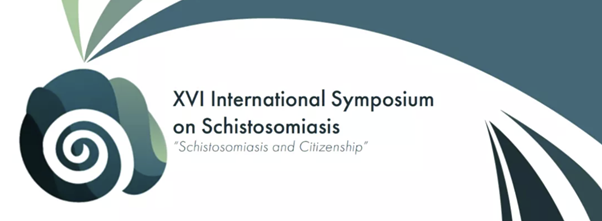
This International Symposium on Schistosomiasis is a globally recognised international conference that occurs every four years. It aims to “bring together the actors involved in the generation of knowledge, products, public policies and health managers to join efforts and accelerate the process of schistosomiasis elimination as a public health problem”.
In November 2022, the symposium took place at the renowned Federal University of Ouro Preto, Brazil. Eliminating schistosomiasis as a public health problem requires close collaboration among research groups with different expertise and their interaction with public health policymakers and control program managers in endemic countries. The symposium was originally postponed due to COVID, however, a suite of papers dedicated to this meeting appeared in Frontiers in Immunology, aiming to stimulate discussions.
This International Symposium on Schistosomiasis represents an extremely exciting opportunity for “training, interaction, and exchange of experiences among its participants, being of vital importance for the elaboration of actions aimed at the affected populations”. Only by joining forces and expertise will it be possible to translate the knowledge produced in the research and educational institutions into concrete actions, policies and products that are necessary to control and eliminate schistosomiasis.
To my delight, I was invited to present HUGS work entitled “Hybridisations in UroGenital Schistosomiasis (HUGS): Initial findings upon parasitological surveys in Mangochi and Nsanje Districts, Malawi”, I also featured future work within HUGS which was a great opportunity to showcase the project to various world-leading schistosomiasis experts, academic researchers, NGOs (e.g., the Schistosomiasis Control Initiative (SCI)), and policy makers (WHO, etc). My talk was well received and was followed by plenty of engaging questions and discussions on Schistosoma haematobium-group hybrids; where to find them, how to find them, and their potential impact on human and non-human-animal health.
The symposium also provided a great opportunity to learn about schistosomiasis, specifically, intestinal schistosomiasis, in South America, and it settings and challenges outside of the African context. There was a strong focus on past progress and future challenges on controlling intestinal schistosomiasis in Brazil, a country where overall prevalence has reduced dramatically over the past couple of decades, but persistent hot spots of ongoing transmission remain. It is in this context where impactful innovation can truly take place, and it was inspiring to hear and learn about all the novel and extremely promising tools and methods currently under development to aid in fully eliminating intestinal schistosomiasis in South America.
My presentation can viewed here.